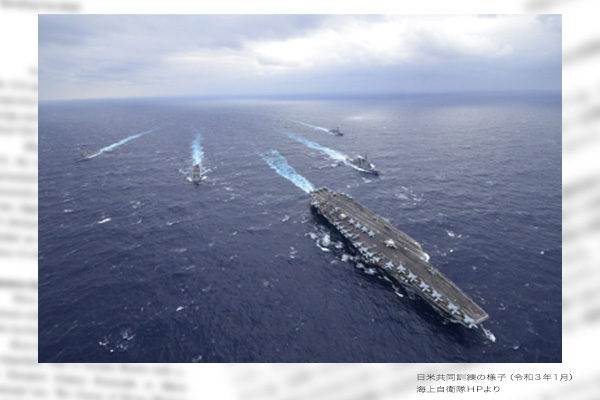I worked for the U.S. Department of Defense as a naval officer and a civilian for 25 years, from 1963 to 1988. By chance my time in the government was approximately the same as the last 25 years of the Cold War. Especially from 1975 to 1985 I worried very strongly about the large number of conventional non-nuclear and nuclear strategic weapons in the Soviet arsenal. However, the Soviet Union collapsed suddenly as a threat to the allied democracies led by the United States.
I used to worry whether Japan, the most important Pacific ally of the U.S. which has developed a high technology, anti-submarine capability, and a sophisticated fleet of F-15 fighters, would fight together with the U.S. if the Cold War became “Hot.” Fortunately, the U.S.S.R. believed that Japan would obey the U.S. and fight together. As a result, the Soviets believe that the combination of the U.S. and Japanese forces in the Pacific were invincible. As a result, deterrence prevailed, and the U.S. and Japan won the Cold War in the Pacific.
Japanese fighting assistance necessary to deter China
China was still a relatively weak military power at the time of U.S.S.R.’s demise. But for the last 25 years as I get ready to retire, I wonder if the U.S. and Japan can successfully deter a modern militarily powerful China. I have three major questions that I think are very important to consider.
First of all, if China uses military force to deny access to the South China Sea and militarily attack Taiwan, will the United States use military force? If it does not do so America’s reign as a Pacific power will fade away. The U.S. -Japan alliance will become meaningless.
The second question is, if United States would fight China, who would join with U.S. If Japan chose to do so, the combined deterring Japanese and American power could well prevail. Without the Japanese fighting assistance, however, the chance of deterrence would very possibly fail.
Find out who Xi is
The third question is who is Xi Jinping? Is he a strong leader, even compared with Stalin or Mao Zedong, or is he a vulnerable selfish power seeker? Would he risk great danger to his country by taking on a united U.S.A. and Japan or would he be prevented from doing so by his Chinese rivals? Especially if Japan and the U.S. successfully win the support of other Indo-Pacific democracies such as Australia and India, the combined quadrilateral deterrent power would be difficult for China to overcome.
I was born in 1941, so as I look back over the years since Japan and the U.S. fought each other in WW II and became strong allies, I feel confident that they can peacefully prevail and deter well into the 21st century if and only if they remain united close allies who will fight together if needed to deter the threat of Chinese hegemony and instead to maintain Indo-Pacific deterrence.
James E. Auer is professor emeritus at Vanderbilt University.


